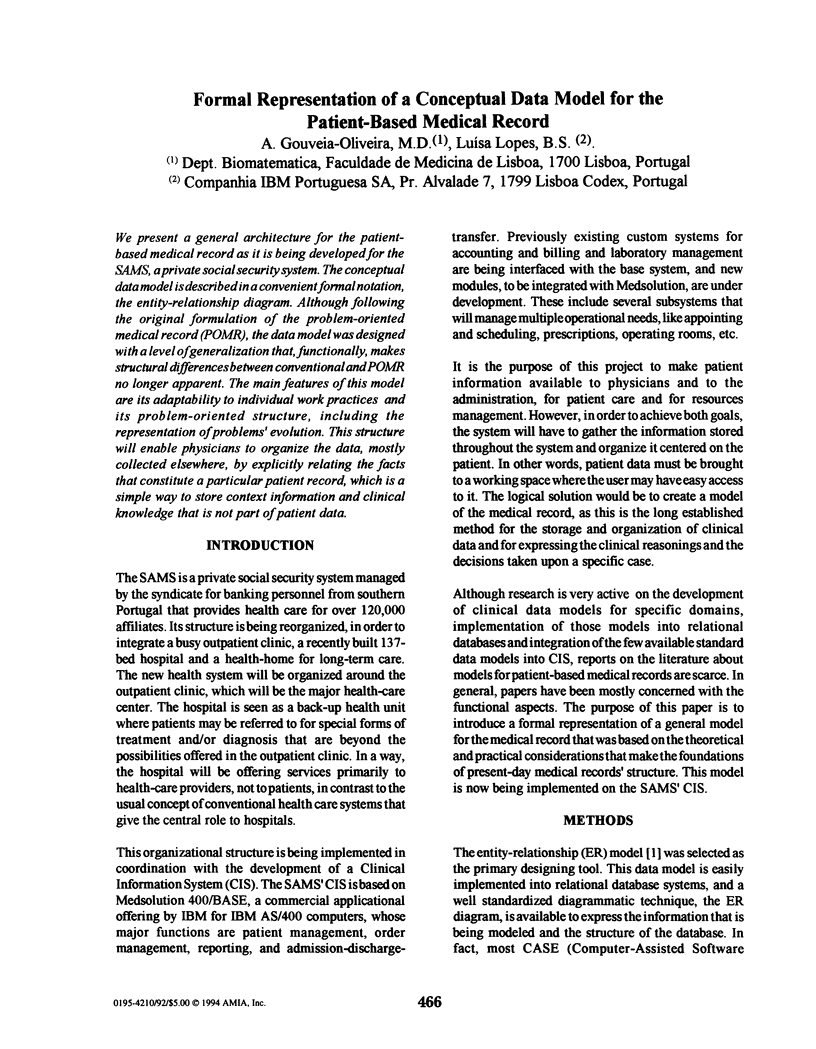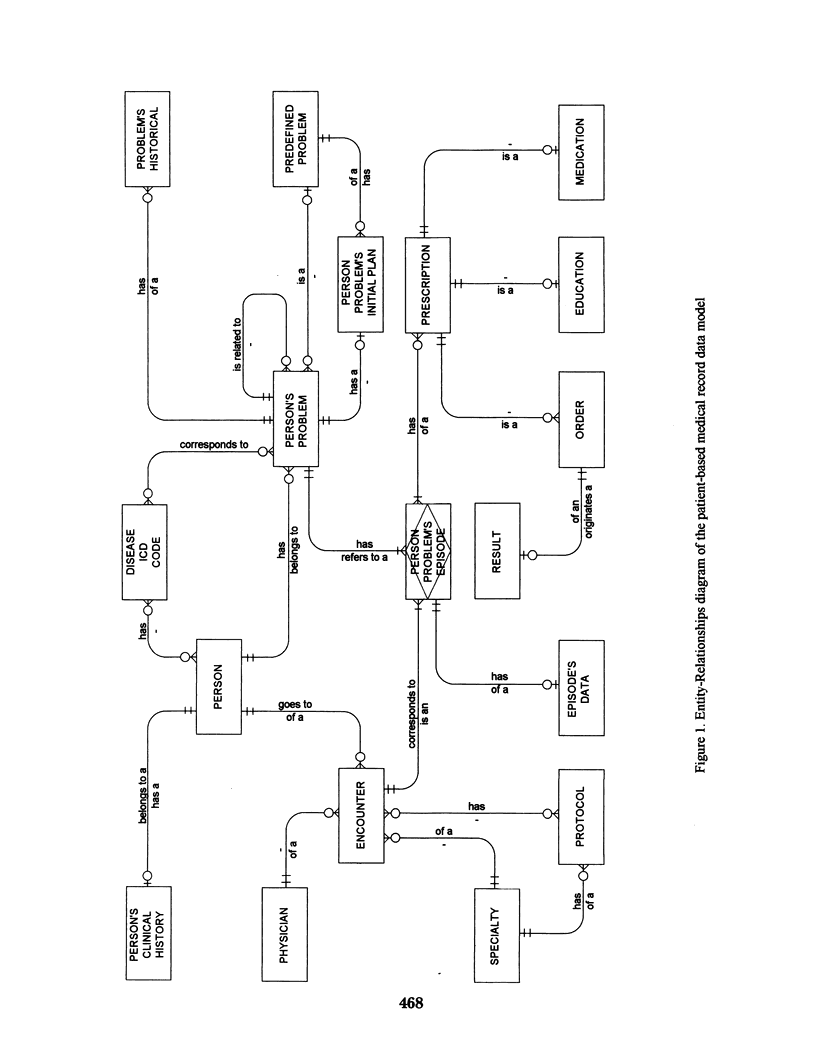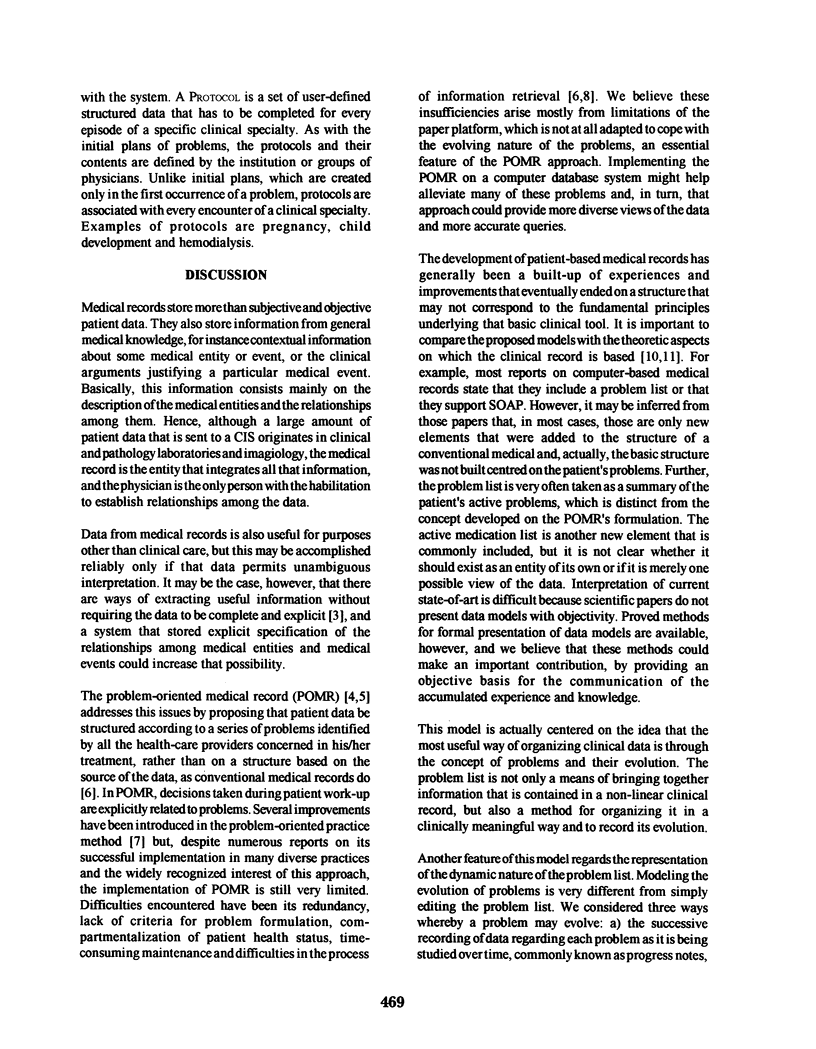Abstract
We present a general architecture for the patient-based medical record as it is being developed for the SAMS, a private social security system. The conceptual data model is described in a convenient formal notation, the entity-relationship diagram. Although following the original formulation of the problem-oriented medical record (POMR), the data model was designed with a level of generalization that, functionally, makes structural differences between conventional and POMR no longer apparent. The main features of this model are its adaptability to individual work practices and its problem-oriented structure, including the representation of problems' evolution. This structure will enable physicians to organize the data, mostly collected elsewhere, by explicitly relating the facts that constitute a particular patient record, which is a simple way to store context information and clinical knowledge that is not part of patient data.
Full text
PDF




Selected References
These references are in PubMed. This may not be the complete list of references from this article.
- Bradbury A. R. Computerized medical records: defining a standard without the computer. Med Inform (Lond) 1991 Jul-Sep;16(3):279–286. doi: 10.3109/14639239109025302. [DOI] [PubMed] [Google Scholar]
- Feinstein A. R. The problems of the "problem-oriented medical record". Ann Intern Med. 1973 May;78(5):751–762. doi: 10.7326/0003-4819-78-5-751. [DOI] [PubMed] [Google Scholar]
- Goldfinger S. E. The problem-oriented record: a critique from a believer. N Engl J Med. 1973 Mar 22;288(12):606–608. doi: 10.1056/NEJM197303222881205. [DOI] [PubMed] [Google Scholar]
- Rector A. L., Nowlan W. A., Kay S. Foundations for an electronic medical record. Methods Inf Med. 1991 Aug;30(3):179–186. [PubMed] [Google Scholar]
- Safran C., Rury C., Rind D. M., Taylor W. C. Outpatient medical records for a teaching hospital: beginning the physician-computer dialogue. Proc Annu Symp Comput Appl Med Care. 1991:114–118. [PMC free article] [PubMed] [Google Scholar]
- Weed L. L. Medical records that guide and teach. N Engl J Med. 1968 Mar 14;278(11):593–600. doi: 10.1056/NEJM196803142781105. [DOI] [PubMed] [Google Scholar]
- Wilton R. Non-categorical problem lists in a primary-care information system. Proc Annu Symp Comput Appl Med Care. 1991:823–827. [PMC free article] [PubMed] [Google Scholar]
- van Ginneken A. M., van der Lei J., Moorman P. W. Towards unambiguous representation of patient data. Proc Annu Symp Comput Appl Med Care. 1992:69–73. [PMC free article] [PubMed] [Google Scholar]


